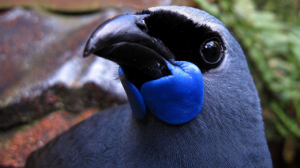Currie Cup Predictions for Round 10
Team Ratings for Round 10
The basic method is described on my Department home page.
Here are the team ratings prior to this week’s games, along with the ratings at the start of the season.
| Current Rating | Rating at Season Start | Difference | |
|---|---|---|---|
| Lions | 6.36 | 3.04 | 3.30 |
| Western Province | 4.74 | 4.93 | -0.20 |
| Blue Bulls | 2.21 | 0.17 | 2.00 |
| Sharks | 1.53 | 3.43 | -1.90 |
| Cheetahs | -2.42 | -1.75 | -0.70 |
| Pumas | -6.89 | -6.47 | -0.40 |
| Griquas | -9.63 | -7.81 | -1.80 |
| Kings | -9.80 | -9.44 | -0.40 |
Performance So Far
So far there have been 36 matches played, 26 of which were correctly predicted, a success rate of 72.2%.
Here are the predictions for last week’s games.
| Game | Date | Score | Prediction | Correct | |
|---|---|---|---|---|---|
| 1 | Lions vs. Western Province | Oct 02 | 62 – 32 | 4.00 | TRUE |
| 2 | Blue Bulls vs. Kings | Oct 02 | 48 – 27 | 14.90 | TRUE |
| 3 | Pumas vs. Cheetahs | Oct 03 | 37 – 37 | -1.10 | FALSE |
| 4 | Griquas vs. Sharks | Oct 03 | 20 – 45 | -6.80 | TRUE |
Predictions for Round 10
Here are the predictions for Round 10. The prediction is my estimated expected points difference with a positive margin being a win to the home team, and a negative margin a win to the away team.
| Game | Date | Winner | Prediction | |
|---|---|---|---|---|
| 1 | Pumas vs. Blue Bulls | Oct 09 | Blue Bulls | -5.60 |
| 2 | Western Province vs. Kings | Oct 09 | Western Province | 18.00 |
| 3 | Lions vs. Griquas | Oct 10 | Lions | 19.50 |
| 4 | Cheetahs vs. Sharks | Oct 10 | Sharks | -0.50 |
